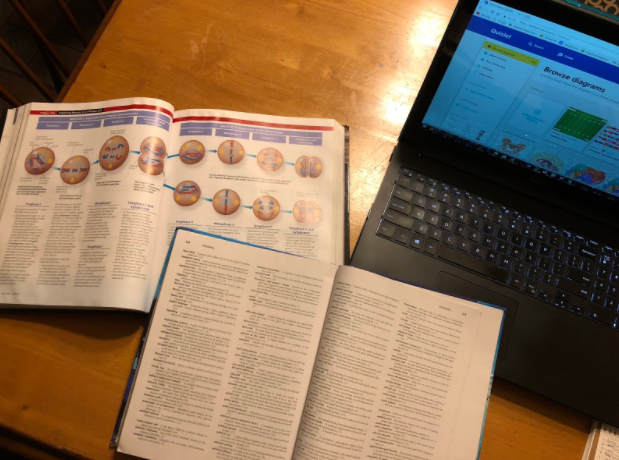Memorization in High Schools
Endless vocabulary terms, diagrams, and school work are given to students to memorize, and then just simply transfer to quizzes and projects.
If you ask any current high school student at MHS or any other high school, memorization is the key to success. The most common type of learning are short, stressed, and crammed studying sessions, where the primary goal is to be able to spit out the exact definitions that the teacher gave out three weeks ago. Surface learning is the only way to survive a high school experience where there is just too much to know all at once. The information goes in one ear, used for the exam, and then straight out the other ear. In order to make it through, critical learning is not a priority for students, and that is a serious problem.
Memorization is considered a low-level status of learning. In younger years, it holds much more importance in our academic studies. Remember you had to learn all the multiplication tables, or every single state capital? The only way that can be done is basic commitment to memory. But as a student progresses through the years, the emphasis is placed on critical thinking. This pertains to thinking past the surface, and deciding how things can work surrounding a topic, and the mechanics behind using it for a functional purpose outside of the classroom. Sadly, it’s almost impossible for a high school student to balance that with the critical thinking that every other class they take requires.
Standardized testing is one of the biggest factors to memorization for high school students. From the first day of freshman year, students are told to get ready for the SATs, ACTs. PARCC, and every test they will take in a high school course. From personal experience, and what the basis of the students in high school can agree on, memorization guarantees success. When you memorize everything for a test, in the shortest amount of time possible so that there is time for other classes, that means a good test grade, then a good year grade, then a good transcript, then a good college, and then a job. A fear that a bad grade means a questionable future pushes students to not care about what they are learning anymore.
When you Google search “memorization tips”, thousands of websites will appear with the purpose to offering limitless different types of memorization for students. From the reward system, to flashcards, online test, group work, and so on, the options are limitless. This simply clarifies that students here, there, near and far, students are struggling with the decision between actually learning the content, or being at the bare minimum preparedness needed to pass the test and move on to the next topic. Senior Lindsay Leu is just one out of many students who know cons of this kind of school system. She stated that “even though you get a good grade through memorization, it’s hard to actually retain the information. With so much going on, there’s not a lot of time to learn past what will allow me to pass.” Rachel Jung, another senior at MHS, input that “It’s hard to say whether it hurts or helps since in some classes you can memorize the entire lesson and come out with an A and majority students will do whatever they can to get that A.” These two speak the truth that a lot of students relate to.
If jobs are looking for critical thinkers right out of colleges, there needs to be some major shifts in how high schools are to run. It’s time for students and teachers alike to work together to create a more educationally encouraging environment, where we come to school to actually learn something, not just pass the classes.

